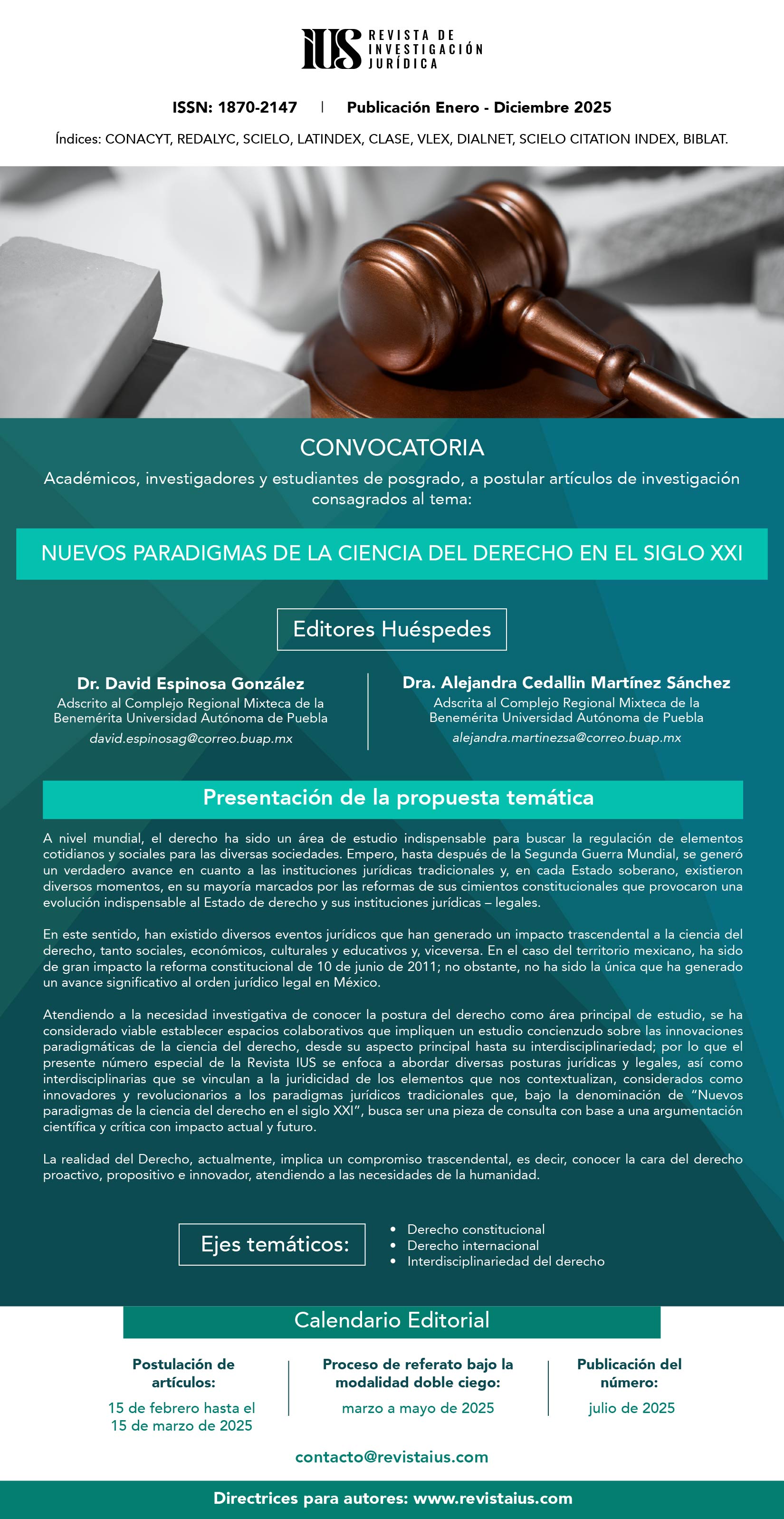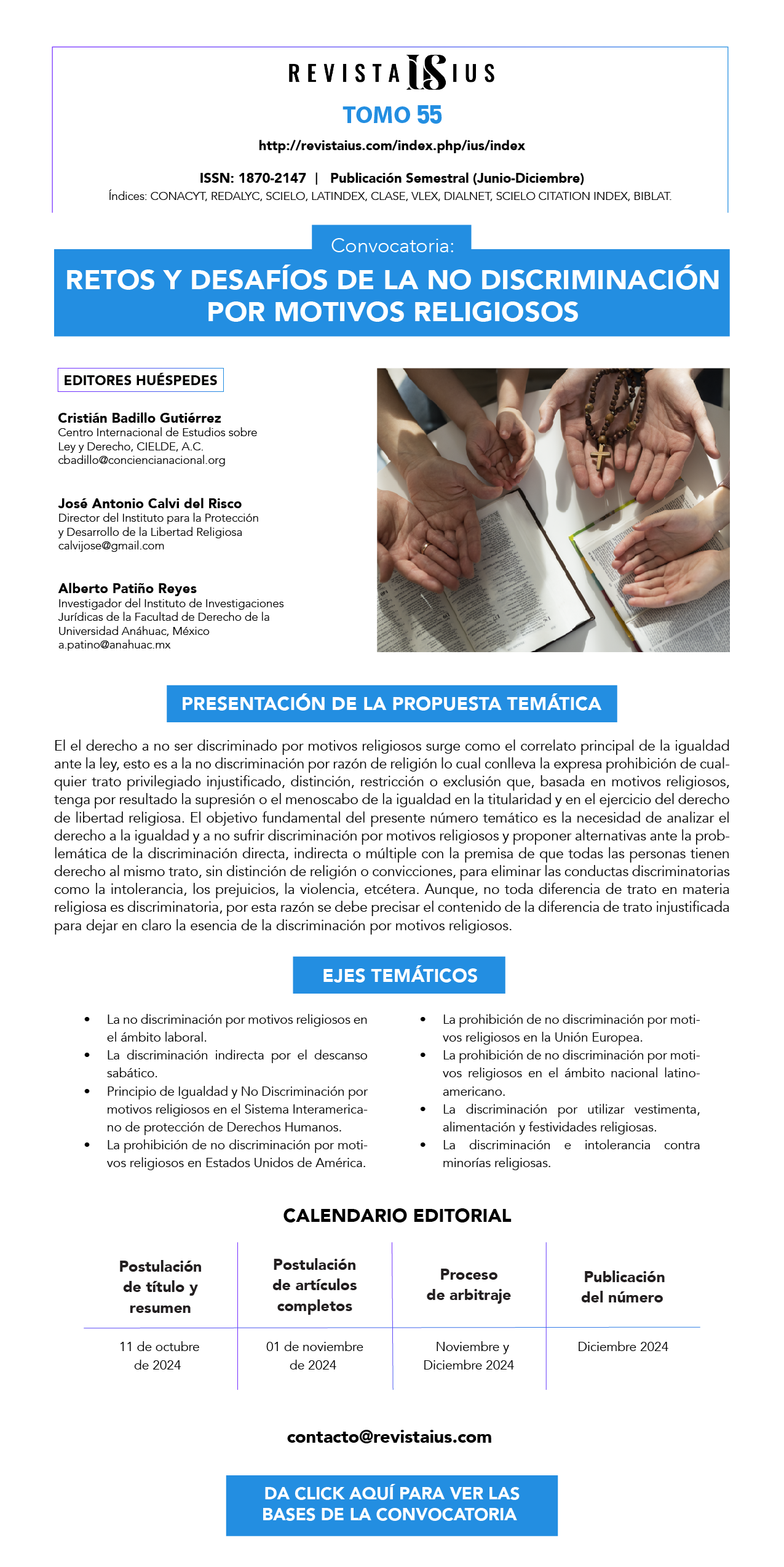Universalismo de los derechos fundamentales y multiculturalismo
DOI:
https://doi.org/10.35487/rius.v2i22.2008.143Keywords:
universalidad de los derechos fundamentales, igualdad de derechos, diferencias culturalesAbstract
El autor sostiene que, para que sea compatible con el multiculturalismo y el respeto de las diferencias culturales, la tesis de la universalidad de los derechos fundamentales —y su corolario de la igualdad— ha de ser entendida, no en un sentido sustancial ni sociológico o cultural, sino en un sentido lógico y puramente formal: como cuantificación universal de los titulares de los derechos. Es más, entendida así, la universalidad e igualdad de los derechos fundamentales representan la principal garantía de las diferencias culturales reivindicadas por el multiculturalismo. Y ello porque los derechos fundamentales, atribuidos a todos y cada uno por igual, protegen al individuo contra todos los demás y particularmente al más débil contra la ley del más fuerte que regiría en ausencia de los mismos. En opinión del autor, la razón que justifica la estipulación jurídica de los derechos fundamentales no está en la idea ontológica y cognitivista de la naturaleza moral del hombre, ni en la unidad moral del género humano, sino en la opuesta de la falta de esa unidad, así como en la naturaleza no ya moral, sino amoral o inmoral del hombre, sobre todo de los hombres que detentan el poder.
Downloads
Downloads
Issue
Section
License
Revista IUS, published by the Legal Sciences Institute of Puebla A.C., is distributed under the Creative Commons Attribution-NonCommercial 4.0 International (CC BY-NC 4.0) license.
We authorize collaborators to upload a copy of their published work on their personal websites or any Open Access repository, provided that Revista IUS is specifically cited as the original source, indicating the year and issue of the respective example and adding the link to the webpage on which this publication can be freely consulted in toto and without charge: http://www.revistaius.com
Readers are free to:
Share, copy and redistribute the material via any medium or format.
The licensor cannot revoke these freedoms as long as you follow the license terms.
Under the following terms:
Attribution: You must give appropriate credit, provide a link to the license, and indicate if changes were made.
You may do so in any reasonable manner, but not in any way that suggests the licensor endorses you or your use.
NonCommercial – You may not use the material for commercial purposes.
If you remix, transform or build upon the licensed material, its distribution is not permitted.
Charges for managing articles: Revista IUS will not charge for receiving, processing or publishing articles (Article Processing Charge, or APC) submitted by authors.





